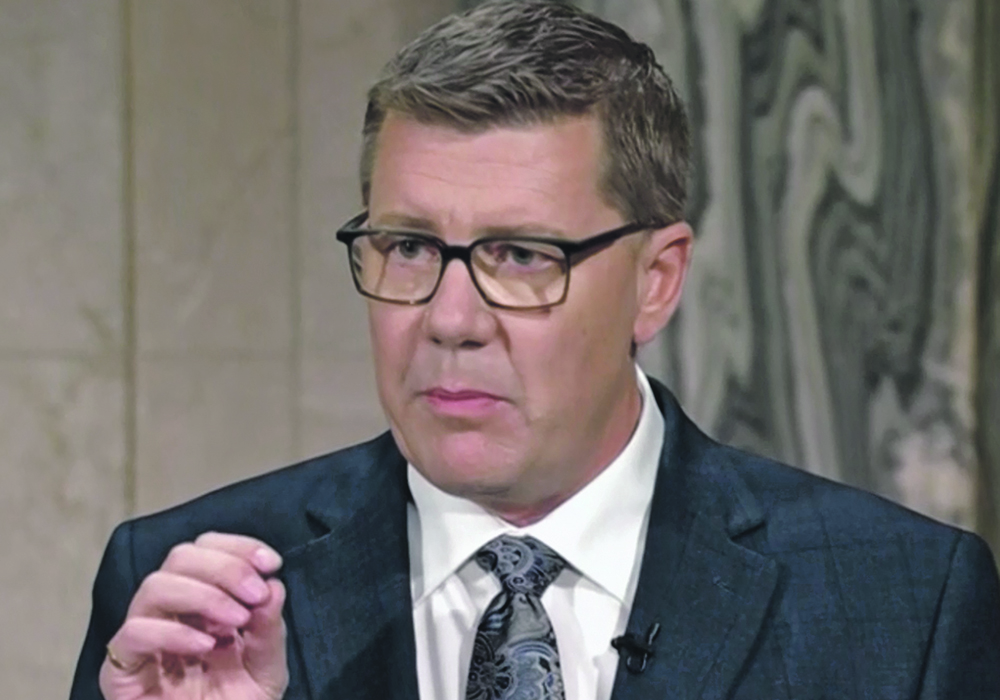Leader Scott Moe says support for him in the province’s rural constituencies also comes with questions about his record
REGINA — Farm voters looking for specific agricultural promises in the Saskatchewan Party provincial election platform might be disappointed.
The party that relies on farmers as a large part of its base is offering little in the way of new policies or spending if it returns to power. It has long had its strongest support in rural ridings, winning all of them in elections since 2007, except for The Battlefords that year.
Leader Scott Moe said in an interview last week that farmers raise three things with him on the campaign trail: crop quality and yield, market access and rail and port concerns.
Read Also

New program aims to support plant-based exports to Asia
Understanding the preferences of consumers in Taiwan and how they differ from Indonesia or Malaysia isn’t easy for a small company in Saskatchewan.
The province can’t control any of those, with the exception of using its trade offices to help access markets.
However, they’re also raising what he called fair questions about the government’s record.
“It’s strong but not without question,” he said when asked about farm and rural support.
“I think that’s true not only in the rural areas but in urban areas.”
The questions are often related to the relationship with the current federal government that was, until recently, propped up by the NDP, he said.
“That’s been problematic not only for the ag industry but for a number of industries that are creating wealth, not just in Saskatchewan but in Western Canada and across the nation,” Moe said.
He gets questions about how his government has reacted to some federal decisions. Carbon pricing is one of those.
“I don’t like to have a disagreement with another level of government. I would far sooner work alongside them to a solution that benefits all Canadians or at least the Canadians the policy will have an impact on,” he said.
“That hasn’t been the case. It’s unfortunate, and I think it’s to the detriment of Canadians that we don’t have that working relationship with the federal government. There’s some fair questions about that: some are ‘why can’t you work with them’ and some are ‘you never should work with them.’ ”
Because agriculture is a shared jurisdiction, provincial support usually runs to fully funding business risk management programs, such as crop insurance and AgriStability, which the Sask. Party has always done. The platform notes $5.9 billion in crop insurance payouts over the last three years.
Moe said he hears the call for improved insurance programs, particularly for the livestock sector, and is open to discussing them. Wildlife damage to feed and feed stacks and predation issues are ongoing concerns the provincial government can address and he is hearing from voters.
The document recognizes the province reached more than $20 billion in agricultural exports last year, above its 2030 target.
Moe said 160 countries buy Saskatchewan’s products. India is a significant market and he said, even though the relationship between India and Canada has been strained, Saskatchewan exports to that country are up 70 per cent in the last 18 months.
He credits a strong relationship for that success.
“In fact, of all the provinces, there’s only one province that has their trade commissioner back on the ground, with full diplomatic immunity, and that’s Saskatchewan,” Moe said before recent events that saw India and Canada both expel diplomats.
He is also watching to see how China’s anti-dumping review of Canadian canola plays out.
Moe sees a future full of potential for the agriculture sector in the province, especially with the planned irrigation projects from Lake Diefenbaker.
The first phase, a $1.15 billion rehabilitation project, is expected to be under construction next year. However, there are concerns, including environmental considerations downstream and the cost.
“One concern I heard is around indigenous engagement, which is happening as we speak,” Moe said.
Industry will pay part of that price tag, although the exact amounts have not yet been determined.
He said those who think the project won’t bring value-added opportunity to the province are wrong. He expects further vegetable processing — a new facility is under construction now — and a larger feedlot industry.
As well, he said critics are overlooking the fact that Saskatoon and Regina need water security. That’s to be Phase 3 of the plan.
“Building out this canal infrastructure is not only going to benefit the value of crops that we grow and attract that value-added investment, it’s going to provide water security for our two largest cities and all of the surrounding communities as well,” he said.
Other industries such as steel, potash and canola crushing all need water security to provide jobs and economic activity.
“It’s all part of the staged build,” Moe said.
“And it’s all part of the vision that Lake Diefenbaker was on day one over 60 years ago. We’re proud to restart that vision.”
Still, none of this is new. The Lake Diefenbaker project was announced before the 2020 election.
NDP leader Carla Beck has said she would review the plan.
Saskatchewan voters go to the polls Oct. 28.


















